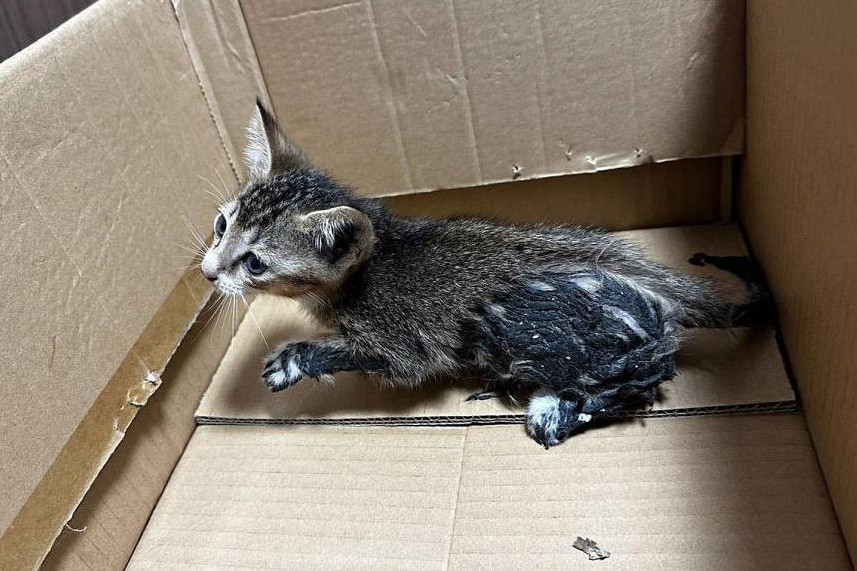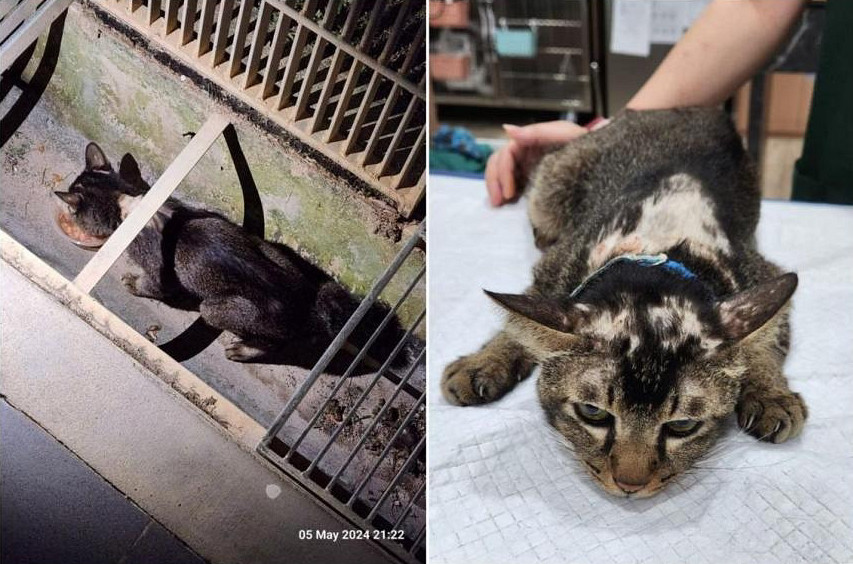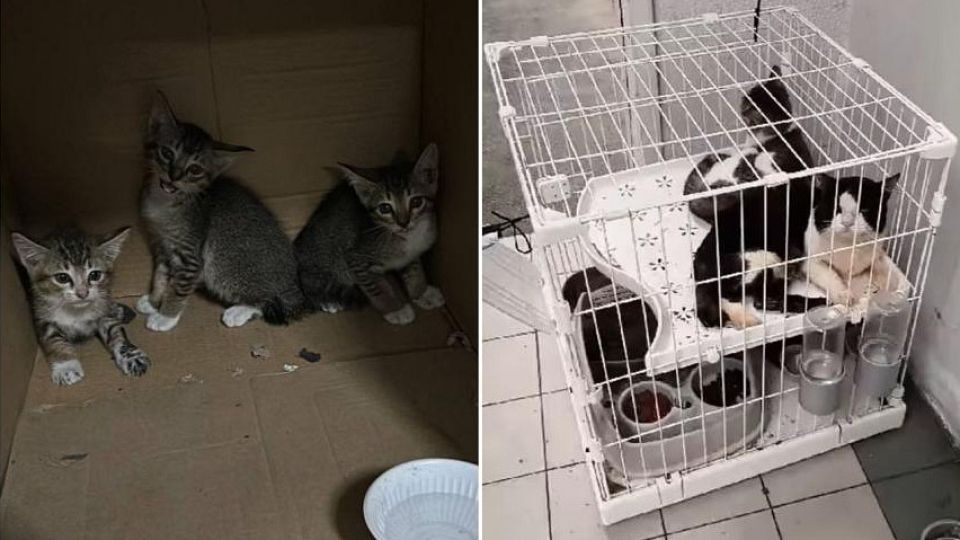August 21, 2024
SINGAPORE – Every year, independent cat rescuer Michelle Shoo keeps track of the felines she takes in by naming them according to letters of the alphabet.
It is only August, but the 35-year-old talent development manager has already run through A to Z once, landing on I again. This marks her 35th case for 2024.
“There’s been a surge in abandonments as it seems like people have misunderstood the laws, (thinking) that they can keep only two cats,” said Ms Shoo, who receives requests every week from those wishing to offload their cats.
Ms Shoo – and other rescuers like her – attests that the number of alleged abandonment cases they handle has surged since the announcements about the Cat Management Framework in December 2023 and May 2024.
“I think what people need to know is that they can keep all their cats if the cats are licensed,” Ms Shoo said.
This is echoed by the Society for the Prevention of Cruelty to Animals (SPCA), which called on the authorities to do more to tell pet owners about the flexibility of the two-year grace period that the Cat Management Framework affords them. This will deter owners from abandoning their additional cats.
Come Sept 1, pet owners can legally keep up to two cats in an HDB flat and up to three cats for each private residence.
They will be given two years to meet licensing and microchipping requirements, which will help the authorities to better trace pet cats, respond to disease outbreaks, and “hold irresponsible cat owners to greater account if they abandon, neglect or abuse their cats”.
Those with more cats than permitted can keep all their existing pet cats if they license them within the transition period.

One of the kittens found allegedly abandoned in a cardboard box in Yishun Avenue 9 in June 2024 was covered in a black, glue-like substance. PHOTO: MICHELLE SHOO/THE STRAITS TIMES
Animal welfare group Causes for Animals estimates that it now sees one case of abandonment a week, up from one case every two weeks in 2023. Singapore Cat Feeders shared similar numbers, with one case a week compared with once a month previously.
The administrator of public Facebook group Sayang Our Singapore’s Community Cats (Sayang), who wanted to be known only as Eliza, said that between January and July 2024, the group received reports of 33 unique alleged abandonment cases. This is up from the 23 cases during the same period in 2023. These numbers exclude cases that may have been reposted from or posted in other similar group pages.
“It is likely that abandonment cases will continue to increase and surpass the number of cases reported in 2023,” said the 47-year-old, a former public servant.
Misinformation and misunderstanding
The Cat Welfare Society (CWS) noted an increase in the number of reports of alleged cat abandonment it has received since the public consultation on cat management was launched in 2023.
“We attribute this to misinformation and misunderstanding on the existing position of the cat ban, and the information that there will be a fetter on numbers of cats permitted in homes,” said the charity.
Although all the rescuers and welfare organisations ST spoke to agree that there is a definite spike in alleged abandonments, actual numbers are hard to pin down.
Rescuers’ caseloads can vary widely due to external factors such as location, festive periods, and their financial ability to undertake more. The lack of space is also an exponentially growing issue, with most welfare organisations, fosterers and rescuers themselves struggling to accommodate the jump in cases.
On average, the cost of taking in, feeding, medically evaluating and housing a healthy cat for a month can cost more than $3,500, depending on how quickly the cat can be rehomed or adopted. Caring for an unhealthy cat can easily rack up thousands of dollars in expenses, accounting for possible surgery and extended rehabilitation.

This cat was found in a severely malnourished state at a void deck of a Bukit Batok Housing Board block in end-July 2024. It has since been rescued and is recuperating with welfare group Animal Human Alliance. PHOTO: SAYANG OUR SINGAPORE’S COMMUNITY CATS/THE STRAITS TIMES
Many cases of abandonment go unreported and unresolved, say rescuers, with only those that get posted on social media receiving attention, if any.
Even then, most rescuers prefer to focus their efforts on attending to and rehoming the cats they handle, as opposed to lodging a report with the authorities. They say having a case fulfil the various criteria for the ensuing investigative process is time-consuming, and may not lead to a conclusion at all.
In cases of alleged animal cruelty, including abandonments, the National Parks Board’s Animal and Veterinary Service (AVS) initiates an investigative process that involves gathering evidence, interviews and statements from suspects and witnesses, and veterinary reports (and post-mortem results, if applicable), as well as information from other government agencies.

A malnourished cat with a ringworm infection was allegedly abandoned in April 2024. It has since been rescued and is recuperating. PHOTO: SINGAPORE CAT FEEDERS/THE STRAITS TIMES
Those who are found guilty of failure in their duty of care to their pets, including abandoning them, can be charged under the Animals and Birds Act.
First-time offenders who fail in the duty of care to their pets may face a fine of up to $10,000, a jail term of up to 12 months, or both.
According to AVS, about 95 per cent of reported cases of abandonment cannot be substantiated due to a lack of information required for investigation.
What do official numbers say?
Official numbers from AVS show a steady increase in the number of abandonment cases being investigated over the years.
However, despite the recent anecdotal surge in the number of alleged cat abandonments, statistics from both AVS and SPCA do not strictly suggest an uptick in the number of cases that can be pegged directly to the new framework.
The increase could be partially due to greater public awareness and concerns over animal welfare, with more people stepping forward to provide feedback, said AVS.

In 2023 – the worst year for animals in more than a decade – SPCA dealt with 137 abandonment cases involving 285 animals, twice that in 2022. The number of animals abandoned in previous years was about 70 on average. Cats made up the largest group, with a total of 127, comprising about 45 per cent of the animals abandoned.
In the first half of 2024, SPCA logged 63 cases of cat abandonment which were either suspected or confirmed.
It told The Straits Times that anecdotally, it has observed an increase in inquiries from people asking about the rehoming and licensing of their cats in relation to the new cat management framework, and pointed to other animal welfare groups that have also observed more abandonments in recent months.
What could help reduce the number of abandonments?
Nee Soon GRC MP Louis Ng is pushing for mandatory sterilisation of pet cats in a White Paper he plans to submit to the Government, which will also propose increased penalties for cases of animal abuse, as well as define more clearly the duty of care that those who own or work with animals must provide.
His goal is aligned with those of most rescuers ST spoke to.
“Sterilisation must be made mandatory, along with the microchipping and licensing rule. Otherwise, the implementation of the framework will have little success, if at all,” said Sayang’s Eliza.
Rescuers also called for the authorities to take clearer, more punitive action against those convicted of abandoning their cats to deter them from doing so, as well as stringent on-the-ground enforcement to make perpetrators constantly aware of the consequences.
Citing a 2022 parliamentary answer on pet abandonment numbers, CWS pointed out that of the 1,075 cases from 2017 to 2021, only 33 – or 3 per cent – resulted in punitive action, with half the cases investigated, and half the cases for which further action was taken, involving cats.
“Three per cent is not a deterrent,” said the CWS.
In abandonment cases that AVS is able to substantiate, owners cite reasons such as the lack of finances or time, allergies to fur and dander, and being unable to manage the increased population among unsterilised cats.
In cases of unwanted breeding among unsterilised cats, the number of cats within a household can increase rapidly, exceeding the owner’s capacity for care.
AVS told ST it is sticking to encouraging the licensing of pet cats for now, as mandatory sterilisation – which it will continue to look at – may have a deterrent effect on the former.
“We urge owners to sterilise their cats as this will not only prevent unwanted breeding but offer health benefits to the cats as well – sterilised cats will have a reduced risk of certain cancers, and are less likely to roam and caterwaul,” said AVS.
“Being a pet owner is a lifelong commitment, and pet owners must be responsible and provide appropriate care throughout their pet’s lifetime. AVS does not accept pet surrenders from pet owners.”
Members of the public who suspect cases of pet abandonment are encouraged to alert AVS immediately and provide evidence, where possible, to facilitate investigation efforts.

